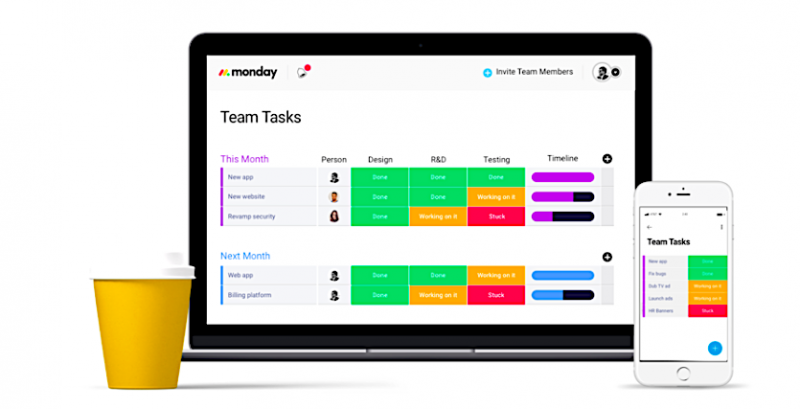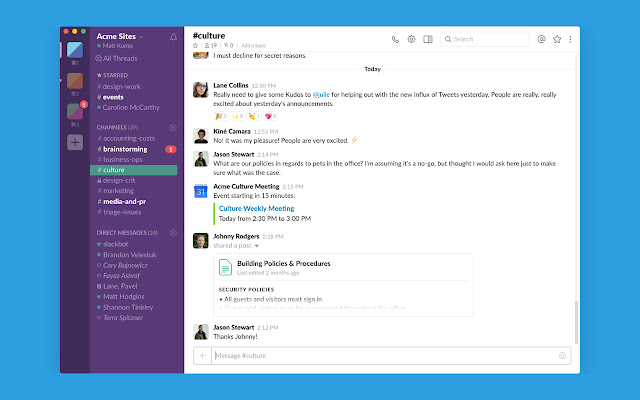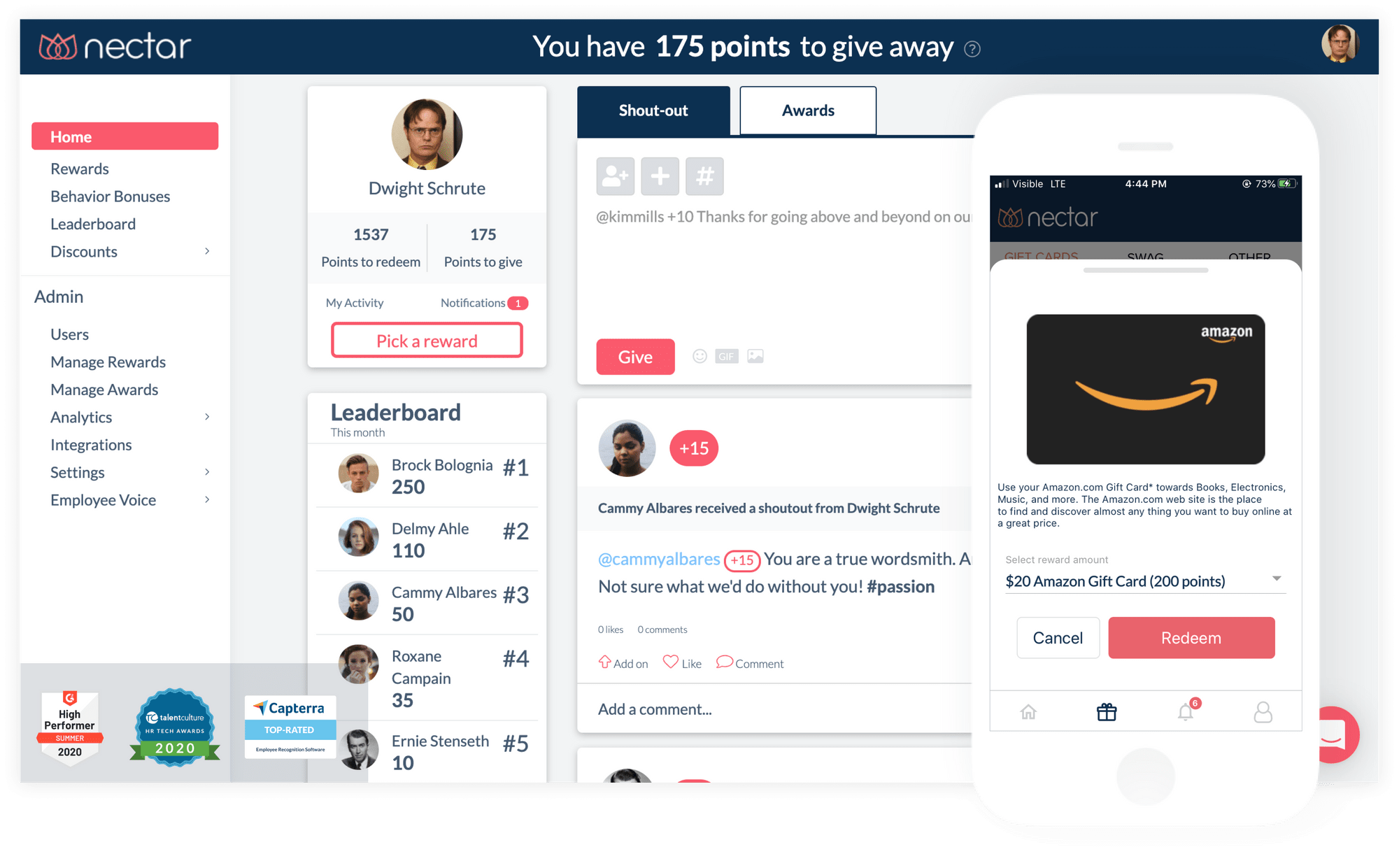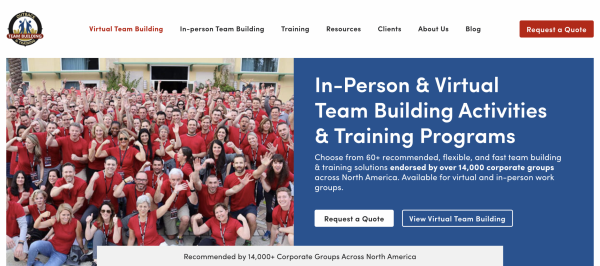
Whether you’re an aspiring, first-time, or seasoned manager, you may find yourself asking “What does it take to be a good manager?” In this article we explore just that by looking at tips and strategies on how to be a great manager and the qualities that effective leaders should possess. American politician and 35th president of the United States, John F. Kennedy, once said:
Leadership and learning are indispensable to each other. Share on XWith these words in mind, it becomes clear that the path to becoming an exceptional manager is a continual process of learning and growth. To be a leader you must have a thirst for knowledge and encourage your employees to as well.
Why not start quenching that thirst for knowledge now?
Read on to discover some beneficial strategies and tips to assist you on your path to becoming the best manager possible!
Once you finish reading our list, check out one of our favorite resources — The Assist. Trusted by thousands of professionals, it’s a free and fun weekly email you can easily digest in 5 minutes that helps you level up at work.
“I just wanted to say that I really enjoy getting this email blast every week—it’s seriously a breath of fresh air. In the few weeks that I’ve been receiving The Assist, I’ve already gotten several very practical tips that have helped me in the day-to-day.” -Madelyn K., The Assist Subscriber
Page Contents (Click To Jump)
How To Be A Good Manager: Strategies
This section provides some key strategies that will help sharpen your ability to be an effective leader. Think of this section as an action item list on tangible strategies you can begin implementing with your team. Each of these strategies will not only help you become a better Manager but will contribute to an overall better work environment.
1) Build Trust

Trust is a vital pillar to any relationship but becomes particularly important in a Manager-Employee relationship dynamic. Establishing and maintaining a high level of trust between you and your employees will create an environment conducive to open and honest thought exchange. Lack of trust between you and your employees can result in a culture of mistrust and contention, which obviously is quite the toxic work environment.
2) Listen

As a Manager, it’s easy to get bogged down with your workload and responsibilities but be sure to carve out time to actively listen to your employees. If an employee does not feel heard, their levels of productivity and engagement will inevitably decrease. Avoid that potential decline by letting your team know that you welcome their input and value their feedback. It may be tempting to chime in or interrupt an employee when they’re speaking but resist the urge to do so and simply listen.
3) Communicate

Communication is key to being a successful Manager. Know what your communication style is and how best to communicate with each of your employees. Keep the communication channels open between yourself and your team. Having an open-door policy helps to foster transparency and trust between you and your employees. Be sure your team knows how best to reach you and what your communication expectations for them are.
4) Be Collaborative

Instead of micromanaging or spoon-feeding ideas to your team, encourage them to collaborate and brainstorm with you. This will help incubate ideas and strategies while simultaneously encouraging your employees to sharpen their critical thinking skills. Inspire your employees to not just work for you, but with you.
5) Promote Personal And Professional Development

As a Manager, you are responsible for your employee’s personal and professional development. Don’t leave development goals on the back burner to only be discussed during mid-year and end of year performance reviews. Instead, keep personal and professional development goals top of mind throughout the year. Ask your employees how you can help them create and achieve their individual development milestones.
6) Have Regular Check-Ins

Schedule recurring calendar invites for periodic one-on-one meetings with each of your team members. These meetings provide your employees with a forum to vocalize their ideas/feedback and keep track of project progress against deadlines. They also help to keep communication channels open and keep you and your employees aligned, focused, and goal oriented.
7) Find Out What Motivates Your Employees

A good Manager must figure out how to motivate their employees and keep them energized, engaged, and productive. Whether it’s positive affirmation, helpful criticism, perks, or rewards, identify what factors best motivate your team and use them to keep your employees consistently inspired to succeed.
8) Give Employees A Balance Of Praise And Criticism

Everyone loves a compliment or a kudos on a job well done, but as a good Manager, you need to be comfortable providing constructive criticism in addition to praise. Showering your employees with too much praise lessens the impact and meaning behind the praise. But you also do not want to be overly critical of your employees as this could result in low team morale. The goal is to strike a healthy balance between the two. Try sending an employee appreciation box the next time you want to deliver praise.
9) Manage Up, Not Just Down

Obviously a great Manager knows how to manage down, i.e. how to manage and guide their direct reports. Equally important is a a Manager’s ability to manage up. Know the management and communication styles of your superiors so that you can tweak your strategies and correspondences accordingly. As a Manager, it’s your responsibility to be an advocate for your employees. Ensure your superiors are in the loop as it relates to your employees and that expectations are clearly set.
10) Consider Management Training

Being a superb leader doesn’t happen overnight. Whether you’re a new Manager or years into your managerial career, management training courses are a phenomenal way to continue your own personal and professional growth journey. The more skills and strategies you learn, the more you can take back and implement with your team. Many companies offer ongoing management training courses. Don’t be afraid to raise your hand and ask for more training and resources so you’re empowered to be the best Manager possible.
How To Be A Good Manager: Tips

Our Tips section provides you with some helpful ideas to keep in mind as you navigate the path to becoming an exceptional Manager. These tips consist of some philosophies that you can utilize not only to be a better Manager but a better version of yourself as well.
- Be a human first: The golden rule of treating others how you’d like to be treated becomes even more relevant in a Management role. Being a kind and empathetic human to your employees goes a long way in building a healthy working relationship.
- Get to know your employees: Take the time to get to know your employees, both personally and professionally. What’s their communication style? What hobbies do they have outside of work?
- You’re still a boss, even if you’re friends with your team: Just because you’re the boss, doesn’t necessarily mean you can’t befriend your employees. You can be friendly with your team but be sure to keep professional boundaries in place.
- Encourage employees to try new things: As a Manager, it’s your responsibility to ensure your employees continually grow and consistently build their knowledge base. The only way for employees to accomplish this growth is to step out of their comfort zone and try new things.
- Implement perks: Who doesn’t love company perks? There are tons of ways to reward your employees.
Pro-Tip: Check out the awesome employee care packages offered by Caroo to find the perfect fit for your team.
- Don’t be afraid of making mistakes and adjustments: Fast failure is a common strategy at many companies for a reason. Being comfortable making mistakes and learning from those mistakes is key to both overall company success and individual Manager success as well. It’s OK not to get everything 100% correct right off the bat.
- Understand and leverage your team’s individual strengths: Know how each member on your team contributes to your group’s success. You want your team to work together, but also utilize their unique individual strengths. As a Manager, you must pinpoint the areas in which each employee excels and leverage those strengths to benefit the broader team’s success.
- Find a mentor: Whether it’s someone within your company or an external contact, having a mentor provides you with an invaluable resource as a Manager. They can provide you with guidance and advice on your path to becoming an exceptional Manager.
- Lead by example: As a Manager, you’re in a leadership role where your employees look to you for direction. You should embody the core values of your company and serve as an example for your team on how they should conduct themselves within the workplace.
- Delegate tasks, then step away: Letting go and trusting your team to handle their tasks is one of the most challenging aspects of being a Manager. You’ll likely feel the need to take on everything yourself, but delegating tasks to your employees and trusting them to hit those tasks out of the ballpark are vital to your success as a Manager.
- Be the ultimate cheerleader: A cheerleader motivates their team to win. As a good Manager, you should be doing just that. Did your team hit a roadblock in their project? Root them on to navigate the speed bumps. Maybe the team hit a huge milestone goal? Applaud their hard work and the team’s successes.
- Share and invite feedback: Feedback should be a two-way street. To be a successful manager, you need to create an environment where your team feels comfortable providing you with feedback and vice versa.
- Create an open space for employees to ask for help: Creating a safe space for employees to voice concerns and ask questions not only builds trust between you and your team, but also increases overall employee well-being. Your employees shouldn’t be hesitant or scared to ask for help.
- Strengthen your own skills: Just because you’re in a Management position, doesn’t mean your professional learning and growth comes to a screeching halt. It’s so important to continue adding to your knowledge base and sharpening your team management skills.
- Set achievable goals for yourself and your team: Setting clear and achievable goals for yourself and your team ensures everyone is aligned and working towards tangible success pillars. When creating goals, you want to be sure they are measurable, concise, and will result in wins for your team and the company as a whole.
- Don’t take it all too seriously: It’s important to keep things in perspective. Yes, you want your employees to be successful and achieve their goals. However, you also want them to be happy and balanced individuals as well. Know how to keep things light and breathe some levity into stressful situations.
How to Be a Good Manager: Tools & Software
This section dives into some awesome tools and software options that will help aid you in your journey to becoming a good Manager. As a Manager, you should be well-versed not only in your company’s technology and software but emerging software trends as well. Our picks below will help set you and your team up for success.
Collaboration Tools
There are a myriad of office management and collaboration tools available for your team’s use. Collaboration tools have become even more popular in the past year as they allow companies to effectively manage teams that may be remote or distributed across different offices. These tools also help with time management and keeping projects on schedule.
Our pick: monday.com
monday.com enables you to manage everything from one central hub, including planning, tracking, and delivering your team’s work. Their platform also integrates with a ton of other existing tools such as Salesforce, Outlook, and Microsoft Teams.
Communication Tools
Communication tools have also become increasingly more popular and robust the past couple years. These tools for managers offer your team a way to keep the lines of communication open and everyone working from the same playbook. As a Manager, it is important to establish clear communication expectations and guidelines to your team. Rather than expecting your employees to be always-on, have a plan in place for after work-hours communications.
Our pick: Slack
Slack is so much more than merely a messaging tool. Slack’s platform allows you to stay in touch with your team, work externally with business partners, and conduct video calls all in one user-friendly interface. With 85% of Slack users feeling more connected to their team, the platform’s sure to help strengthen team communication amongst your employees.
Recognition Tools
When brainstorming employee recognition ideas, try exploring recognition tools and software to help streamline. An effective Manager builds a culture of recognition within their team. While recognition from a Manager is crucial to employee motivation levels, peer-to-peer recognition also helps keep employees feeling recognized and valued by their team. Lack of employee recognition can lead to lower employee engagement levels and burnout, which as a Manager, you definitely want to avoid.
Our pick: Nectar
Nectar is a fantastic employee recognition software that encourages both Manager and peer-to-peer praise. With social recognition, rewards, and employee perks, their platform offers a 360 recognition experience for your team, building a company culture of employee appreciation.
Company Culture Tools
A great way to encourage teamwork and build trust among your team is to offer team-building opportunities both in and out of the office. Even organizing a simple game of basketball can help your team de-stress and build camaraderie. When we share experiences with one another, we create and strength our bonds with each other. This will help your team members feel comfortable and at ease not only with you, but with one another.
Our pick: Outback Team Building
This team building resource offers a ton of different team bonding activities that are sure to bring your team together. With virtual team building options, in-person activities, and group development/training programs, Outback Team Building makes it easy to find the perfect fit for your team.
Qualities of a Good Manager
In this section, we explore what qualities a good manager should possess in order to effectively lead their employees. Keep these qualities in mind as you navigate your day-to-day interactions with your team.
Quality 1: Honest and Transparent

Be as honest and transparent as you can with your employees. No one likes feeling kept in the dark or deceived, so strive to be transparent in how you conduct business and manage your team.
How this quality contributes to being a better manager: Honesty and transparency help create an open and honest environment between you and your employees.
Quality 2: Trustworthy

A good Manger is a trustworthy Manager. If there isn’t trust between a Manager and their employees, a toxic culture of distrust can fester. You want to be sure your team respects and trusts you and your decisions.
How this quality contributes to being a better manager: Simply put – if your team does not trust you, you will not succeed in leading them. You want your team to know they can trust you to make the right decisions with their best interests in mind.
Quality 3: Strong Communication
 Strong communication skills are vital to being an effective Manager. Make sure your team knows your preferred communication style and that you keep the lines of communication open. Communication isn’t just the words we use. It also includes our tone, body language, and facial expressions.
Strong communication skills are vital to being an effective Manager. Make sure your team knows your preferred communication style and that you keep the lines of communication open. Communication isn’t just the words we use. It also includes our tone, body language, and facial expressions.
How this quality contributes to being a better manager: Being a strong communicator will ensure your team has clarity and alignment on tasks, projects, and objectives. If you clearly communicate expectations, your team knows exactly what their success levels will be measured against.
Quality 4: Active Listening

An active listener is able to attentively focus on the individual who is speaking with them. They should be able to withhold judgment and be sensitive to what the speaker is saying and how they say it.
How this quality contributes to being a better manager: If you’re only half-listening to your team, you’re not going to tap into their full potential. By actively listening to your team, you’re able to really get to know your employees and their needs.
Quality 5: Empathetic

Empathy allows you to place yourself in the shoes of someone else and understand their feelings. This characteristic is so important to being a strong leader because it’s your responsibility to ensure your team feels respected and empowered.
How this quality contributes to being a better manager: As an empathetic Manager, your employees will feel seen and understood because you’re able to relate to how they feel.
Quality 6: Decisive

As a Manager, you can’t be wishy-washy in your decision making. A strong leader sometimes must make tough choices but being decisive in those choices is key to gaining your employee’s trust and respect.
How this quality contributes to being a better manager: Being able to make decisions effectively and efficiently will provide your team with the guidance and direction they need to succeed.
Quality 7: Confident

There’s a fine line between confidence and cockiness. As an effective leader, you must be confident in how your conduct yourself and how you make decisions. But always remember to remain open to feedback and growth.
How this quality contributes to being a better manager: If you’re a confident leader, you’ll inspire your team to do be confident as well. Take pride in the work you do and encourage your employees to do the same.
Quality 8: Creative

Being creative in the workplace helps you to be both a better Manager and a better employee. It’s easy to get bogged down with daily tasks but being able to take a step back and see the big picture will help you and your team stay on track to deliver overall performance goals.
How this quality contributes to being a better manager: As a Manager, there will be some tough scenarios or projects that require out-of-the-box strategic thinking. Creativity will help you successfully navigate these situations.
Quality 9: Willingness to Change

“That’s just the way we’ve always done it,” isn’t an acceptable business justification. Be willing to challenge the norm and adapt to suit the ever-evolving needs of both your company and team.
How this quality contributes to being a better manager: Without change, there is not opportunity for growth. As an effective leader, your openness to change will encourage your employees to be innovate and forward-thinking.
Quality 10: Empowering

Empowering others to succeed is such an amazing quality to have as a Manager (and as a human being). This characteristic displays your ability to not only inspire but to arm your team with the tools they need to achieve success.
How this quality contributes to being a better manager: Instead of micromanaging your team, empowering them to excel on their own will cultivate independence and ownership.
People Also Ask These Questions About How To Be A Good Manager
Q: What are the benefits of being a good manager?
- A: Being a good Manager results in happy and productive employees who are motivated to do their best work. Managers also have the privilege of inspiring their employees and encouraging their professional and personal growth.
Q: What are some good books on leadership?
- A: The path to being a good Manager begins with being your best self. The 7 Habits of Highly Effective People by Stephen Covey is a great place to start. If you’re a sports fan, Phil Jackson’s Eleven Rings dives into his journey of becoming one of the greatest coaches and leaders in NBA history.
Q: What are good goals for managers?
- A: Your primary goal is for your team and your direct reports to succeed. You also want to measure your own growth as a leader and ensure that your team continues to expand their skill set and meet their own personal goals.
Q: How do I know if I’m a good manager?
- A: If your team is consistently hitting or exceeding their goals and your employees feel comfortable coming to you with their questions and ideas, those are a few signs you’re doing a great job as Manager. On the flip side, if you have a fantastic Manager, consider getting them a gift to show your appreciation.
Q: What skills should I have to effectively manage people?
- A: Strong communication skills, people skills, and organizational skills will help you effectively manage a team.











